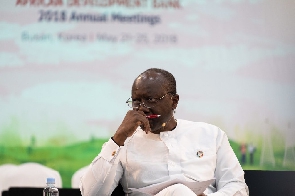 Ken Ofori-Atta Finance Minister
Ken Ofori-Atta Finance Minister
Associate Professor of Finance at the University of Ghana (UG), Professor Lord Mensah has advised the government to get the buy-in of individual bondholders for the International Monetary Fund (IMF) bailout.
Speaking on GHOne TV, he further warned that the country’s IMF deal could be in jeopardy should the Debt Exchange Programme fail.
Lord Mensah also stated that the investor community is shocked about the entire debt restructuring because of the interest levels the government is proposing.
He added that the investor community have not seen or experienced the kind of interest level the government is suggesting to them for the Ghanaian economy.
“In the first announcement that the finance minister made he mentioned the Jamaican experience. They (Jamaicans) also made attempts like this and they didn’t get the buy-in of the people,” Lord Mensah explained.
He continued: “Trust me, the exercise that is ongoing if you did not get the buy-in of the citizen will never work. I am even looking at an IMF program not going through because your citizens did not support your debt exchange. Because you need the citizens to rebuild your economy. If they back out and did not support your debt exchange, whatever objective that this entire exercise is standing for will never be achieved.”
The Associate Professor also added that the investment culture in the country could be greatly dented should the government fail to analyze its approach to the domestic debt exchange.
“They should cut down their own expenditure, the expenditure line. The discretionary expenditures and all those that they can easily do away with can make up for some of the possible losses they are going to make if they should absolve passion and another individual bond from the entire exercise.”
Prof. Mensah said the government should not cosmetically bring back the economy which will turn out to be unsustainable.
“So I will say that the entire exercise should be probed and revisit the structure, adopt the bottom-up approach. Get to know those who own various bond holdings and the interest level is new to our economy, revisit it and Ghanaians will buy into it.”